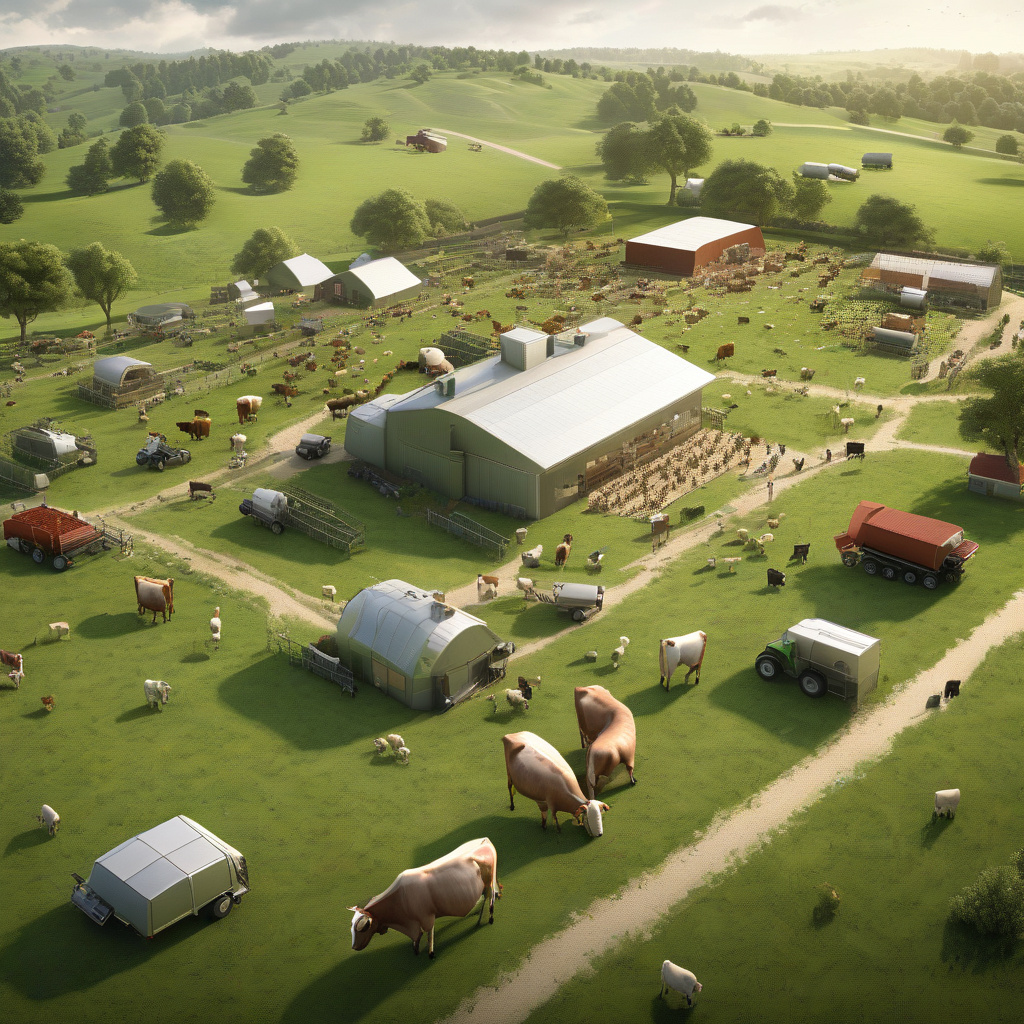Herd efficiency meets sustainability: Data-driven herds for a healthier planet
In the realm of agriculture, the quest for efficiency and sustainability has never been more critical. With the global population on the rise and environmental concerns mounting, the agriculture industry is under pressure to innovate and adapt. Cattle production, in particular, has come under scrutiny for its significant environmental impact, particularly in terms of greenhouse gas emissions. However, thanks to advancements in technology and data-driven solutions, a new era of sustainable agriculture is dawning.
One company at the forefront of this movement is C-Lock Inc., whose innovative GreenFeed technology is revolutionizing the way cattle producers manage their herds. By harnessing the power of data and analytics, GreenFeed enables producers to optimize feed efficiency, reduce emissions, and ultimately create a more sustainable and environmentally friendly operation.
So, how does GreenFeed work, and what sets it apart from traditional herd management practices? At its core, GreenFeed is a system that uses cutting-edge sensors to monitor individual animal feed intake and behavior in real-time. By collecting and analyzing this data, producers can gain valuable insights into each animal’s dietary needs, health status, and overall well-being.
One of the key benefits of GreenFeed is its ability to identify inefficiencies in feed conversion and utilization. By pinpointing which animals are not performing optimally, producers can adjust their feeding strategies to improve overall herd efficiency. This not only helps reduce costs for producers but also minimizes the environmental impact of cattle farming by lowering greenhouse gas emissions per unit of output.
In addition to improving feed efficiency, GreenFeed also plays a crucial role in promoting animal health and welfare. By closely monitoring each animal’s behavior and feeding patterns, producers can quickly identify signs of illness or distress and take timely action to address these issues. This proactive approach not only improves the quality of life for the animals but also reduces the need for antibiotics and other interventions, further enhancing the sustainability of the operation.
Furthermore, by leveraging data-driven insights provided by GreenFeed, producers can make informed decisions about breeding, genetics, and herd management practices. This enables them to create a more resilient and productive herd that is better equipped to thrive in a changing climate and market conditions.
The implications of data-driven herds extend far beyond the individual farm level. By scaling up these technologies and practices across the industry, significant strides can be made towards a more sustainable and environmentally friendly food system. As consumers increasingly prioritize sustainability and ethical sourcing, cattle producers that embrace data-driven solutions like GreenFeed stand to gain a competitive edge in the marketplace.
In conclusion, the marriage of herd efficiency and sustainability is no longer a distant dream but a tangible reality, thanks to innovations like C-Lock Inc.’s GreenFeed technology. By harnessing the power of data and analytics, cattle producers can not only improve their bottom line but also contribute to a healthier planet for future generations. As we look towards a more sustainable future, it is clear that data-driven herds will play a crucial role in shaping the agriculture industry for years to come.
The post Herd efficiency meets sustainability: Data-driven herds for a healthier planet appeared first on Innovation News Network.
sustainability, data-driven, herd efficiency, cattle producers, greenhouse gas emissions












